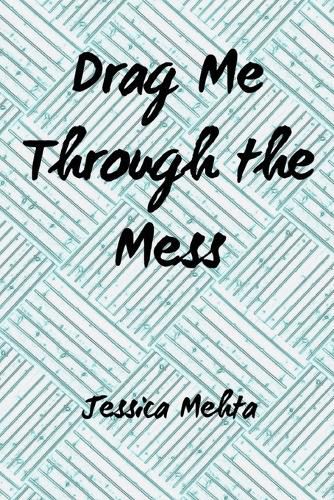Readings Newsletter
Become a Readings Member to make your shopping experience even easier.
Sign in or sign up for free!
You’re not far away from qualifying for FREE standard shipping within Australia
You’ve qualified for FREE standard shipping within Australia
The cart is loading…






This title is printed to order. This book may have been self-published. If so, we cannot guarantee the quality of the content. In the main most books will have gone through the editing process however some may not. We therefore suggest that you be aware of this before ordering this book. If in doubt check either the author or publisher’s details as we are unable to accept any returns unless they are faulty. Please contact us if you have any questions.
In Jessica Mehta’s tenth book, Drag Me Through the Mess uncovers what it means to be an indigenous woman in a society where NDNs are seen as fashion accessories at best and obsolete at worst. Each poem grips the reader and reveals a king of honest emotion and telling that’s almost unnerving. All the ugliness and hurts of life are explored with a kind of lyrical beauty that causes deep contrasts and juxtapositions. No matter the subject, readers will relate to the work and themes because at the heart of each is a shared experience.
The mess of life is one everyone shares, and Mehta touches on emotions and feelings at subcutaneous levels. Inspired by the works of Li-Young Lee, Sylvia Plath, Anne Sexton, Kim Addonizio, and all the great of confessional poetry, Mehta finds a way to tap into themes we’d rather turn away from and see them with a lens attuned to discovery–and ultimately healing.
Drag Me Through the Mess takes the reader on a journey that delves into the darkest parts of the human experience before bringing them into a soothing light. Featuring perfect word choices, strong line breaks, and recurring totems that tie the collection together, Mehta’s tenth book is perhaps her strongest. It’s a collection that showcases the full spectrum of the human experience that will leave readers saying, I thought I was the only one. It’s beyond confessional because confessions are often shrouded in shame. Here, there’s no asking of forgiveness.
$9.00 standard shipping within Australia
FREE standard shipping within Australia for orders over $100.00
Express & International shipping calculated at checkout
This title is printed to order. This book may have been self-published. If so, we cannot guarantee the quality of the content. In the main most books will have gone through the editing process however some may not. We therefore suggest that you be aware of this before ordering this book. If in doubt check either the author or publisher’s details as we are unable to accept any returns unless they are faulty. Please contact us if you have any questions.
In Jessica Mehta’s tenth book, Drag Me Through the Mess uncovers what it means to be an indigenous woman in a society where NDNs are seen as fashion accessories at best and obsolete at worst. Each poem grips the reader and reveals a king of honest emotion and telling that’s almost unnerving. All the ugliness and hurts of life are explored with a kind of lyrical beauty that causes deep contrasts and juxtapositions. No matter the subject, readers will relate to the work and themes because at the heart of each is a shared experience.
The mess of life is one everyone shares, and Mehta touches on emotions and feelings at subcutaneous levels. Inspired by the works of Li-Young Lee, Sylvia Plath, Anne Sexton, Kim Addonizio, and all the great of confessional poetry, Mehta finds a way to tap into themes we’d rather turn away from and see them with a lens attuned to discovery–and ultimately healing.
Drag Me Through the Mess takes the reader on a journey that delves into the darkest parts of the human experience before bringing them into a soothing light. Featuring perfect word choices, strong line breaks, and recurring totems that tie the collection together, Mehta’s tenth book is perhaps her strongest. It’s a collection that showcases the full spectrum of the human experience that will leave readers saying, I thought I was the only one. It’s beyond confessional because confessions are often shrouded in shame. Here, there’s no asking of forgiveness.